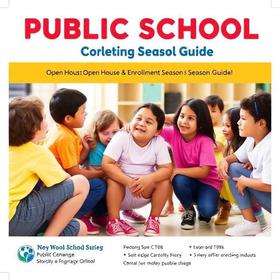For the 2025-26 school year, there are 7 public schools serving 2,433 students in Amory, MS (there are , serving 129 private students). 95% of all K-12 students in Amory, MS are educated in public schools (compared to the MS state average of 89%).
The top-ranked public schools in Amory, MS are Amory High School, East Amory School and Hatley High School. Overall testing rank is based on a school's combined math and reading proficiency test score ranking.
Amory, MS public schools have an average math proficiency score of 64% (versus the Mississippi public school average of 53%), and reading proficiency score of 49% (versus the 42% statewide average). Schools in Amory have an average ranking of 9/10, which is in the top 20% of Mississippi public schools.
Minority enrollment is 27% of the student body (majority Black), which is less than the Mississippi public school average of 58% (majority Black).
Best Public Schools in Amory, MS (2025-26)
School
(Math and Reading Proficiency)
(Math and Reading Proficiency)
Location
Quick Facts
Rank: #11.
Amory High School
(Math: 60-64% | Reading: 60-64%)
Rank:
Rank:
9/
Top 20%10
1006 Sam Haskell Circle
Amory, MS 38821
(662) 256-5753
Amory, MS 38821
(662) 256-5753
Gr: 9-12 | 439 students Student-teacher ratio: 16:1 Minority enrollment: 44%
Rank: #22.
East Amory School
(Math: 64% | Reading: 53%)
Rank:
Rank:
8/
Top 30%10
305 Easthaven Drive
Amory, MS 38821
(662) 256-7191
Amory, MS 38821
(662) 256-7191
Gr: 3-5 | 346 students Student-teacher ratio: 13:1 Minority enrollment: 38%
Rank: #33.
Hatley High School
(Math: 68% | Reading: 47%)
Rank:
Rank:
8/
Top 30%10
60286 Hatley Road
Amory, MS 38821
(662) 256-4563
Amory, MS 38821
(662) 256-4563
Gr: PK-12 | 951 students Student-teacher ratio: 12:1 Minority enrollment: 8%
Rank: #44.
Amory Middle School
(Math: 57% | Reading: 45%)
Rank:
Rank:
7/
Top 50%10
700 2nd Avenue North
Amory, MS 38821
(662) 256-5658
Amory, MS 38821
(662) 256-5658
Gr: 6-8 | 342 students Student-teacher ratio: 13:1 Minority enrollment: 40%
Rank: n/an/a
Amory Career Technical Center
Vocational School
1006 Sam Haskell Circle
Amory, MS 38821
(662) 256-7601
Amory, MS 38821
(662) 256-7601
Gr: 9-12
Rank: n/an/a
Monroe Co Advanced Learning Center
Alternative School
52251 Highway 25 South
Amory, MS 38821
(662) 256-2495
Amory, MS 38821
(662) 256-2495
Gr: 10-12
Rank: n/an/a
704 111th Street
Amory, MS 38821
(662) 256-2601
Amory, MS 38821
(662) 256-2601
Gr: PK-2 | 355 students Student-teacher ratio: 13:1 Minority enrollment: 38%
Amory, Mississippi Public Schools (Closed)
School
Location
Quick Facts
52251 Hwy 25 South
Amory, MS 38821
(662) 256-2495
Amory, MS 38821
(662) 256-2495
Gr: K-6 | 136 students Student-teacher ratio: 15:1 Minority enrollment: 15%
Frequently Asked Questions
What are the top-ranked public schools in Amory, MS?
The top-ranked public schools in Amory, MS include Amory High School, East Amory School and Hatley High School.
How many public schools are located in Amory?
7 public schools are located in Amory.
What percentage of students in Amory go to public school?
95% of all K-12 students in Amory are educated in public schools (compared to the MS state average of 89%).
What is the racial composition of students in Amory?
Amory public schools minority enrollment is 27% of the student body (majority Black), which is less than the Mississippi public schools average of 58% (majority Black).
Recent Articles

Public School Open House & Enrollment Season Guide
A parent-focused guide to the public school open house and enrollment season, with expert questions, timelines, and decision tips.

School Supply Budget 2026: Fees, Books, Tech Costs
School Supply Budget 2026 guide for parents, covering fees, textbooks, technology, and hidden extras to plan ahead.

Education Funding in America (2025 Update)
Comprehensive 2025 update on public school funding in America, new federal and state policies, per-pupil spending, and equity challenges.
